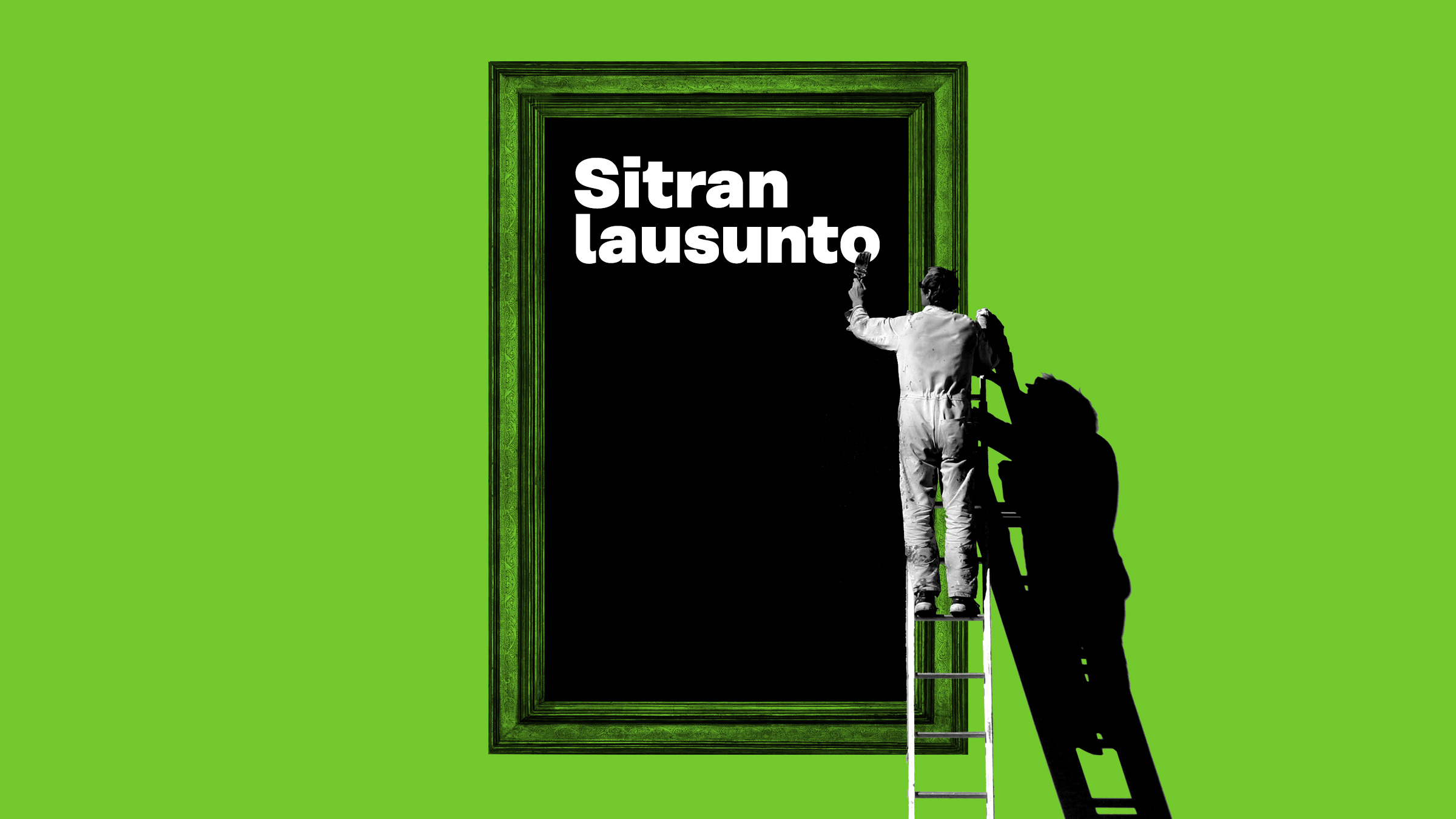Sitra has participated in the European Commission’s call for evidence on the initiative to create a vision for virtual worlds, including metaverses. The Commission intends to create a vision for virtual environments under development. The vision will be based on respect for digital rights and EU legislation and values.
The vision aims to ensure that digital rights and EU values are implemented in emerging virtual environments and that virtual worlds are open, interoperable, innovative, safe and trustworthy for the people and businesses that use them.
Sitra’s main observations
The Finnish Innovation Fund Sitra supports the European Commission’s initiative to establish a vision for virtual worlds. In Sitra’s view, virtual worlds and various web 3.0 solutions, from decentralised autonomous organisations (DAOs) Decentralised Autonomous Organisation; DAO An organisation that operates independently or autonomously, without the management structure of a normal organisation, using blockchain technology. Open term page Decentralised Autonomous Organisation; DAO to non-fungible tokens (NFTs) Non-fungible token; NFT A certificate of the right to a digital copy whose current owner and possession history have been verified using blockchain technology. Open term page Non-fungible token; NFT , provide valuable opportunities for new, fairer business models that respect the digital sovereignty of individuals and further the twin green and digital transition. Sitra is studying this topic and is currently working on a series of articles from a variety of perspectives on phenomena to which web 3.0 could offer potential solutions.
Sitra supports the 23 recommendations from the Citizens’ Panel for desirable and fair European virtual worlds, and encompassing freedom of choice, sustainability, human-centricity, health, education and literacy, safety and security, transparency and inclusion. In Sitra’s view, the Citizens’ Panel is a great example of the engagement necessary for balanced policymaking in forward-looking areas such as virtual worlds and web 3.0 solutions. Sitra is also engaging this year with civil society by funding a pilot programme of up to nine web 3.0 trials in Finland.
Sitra encourages continued meaningful engagement with the public and civil society throughout the process, which is an area that Sitra currently investigates. For example, Sitra recently collaborated with DigiFinland to create a GDPR-compliant version of the digital discussion tool Polis which enables exchanges of opinions without the polarising effects of social media. Sitra is also developing a new open-source platform for voting advice applications that can later be used to develop other digital applications for civic participation.
Sitra is confident that the European Union has the potential to be the leader in innovative and sustainable virtual worlds and web 3.0 solutions. However, there is no time to lose in adopting a strategic path towards this goal.
To this end, Sitra recommends that the EU vision on virtual worlds addresses the following:
- Virtual worlds should be designed with European rights and freedoms in mind. The vision needs to include the potential impacts of virtual worlds on individuals’ rights and democracy. Sitra’s Tracking digipower investigation revealed that the data economy is still unfair for individual users and most businesses. For instance, user data is concentrated in the hands of a few global giants, practices are far from transparent and trust in institutions is declining, posing a threat to democratic processes. Sitra supports the Citizens’ Panel’s vision of a fairer reality – individuals must be guaranteed full control of their data, privacy and security, as supported in part by the Digital Services Act (DSA), the Data Act proposal and the eIDAS Regulation. Data portability and privacy should from the outset be integrated into the development of virtual reality and web 3.0 solutions at the design stage. Having a single digital identity would also enable better identity management and authentication, which would be essential for protecting user privacy and security in virtual worlds too.
- Virtual worlds should account for their contribution towards the twin transition: Sitra recognises the intrinsic linkage between virtual worlds and web 3.0 solutions and the achievement of Europe’s sustainability ambitions. In addition to the potential carbon footprint of these solutions, the potential extent of their energy consumption needs to be strategically addressed in the vision. Virtual worlds and web 3.0 solutions require, among other things, the transfer of even larger data sets, which means an increase in energy consumption. The European Commission’s call for evidence mentions the circularity of devices and the use of renewable energy, which are important elements in controlling the potentially sizeable carbon footprint. The vision should also reflect the need to design virtual worlds and web 3.0 solutions from hardware to software in the most energy-efficient way. Methods to achieve the necessary energy efficiency in digital transition encompassing virtual worlds include such things as increased support for green coding (Sitra has vouched for it on several occasions), including energy efficiency in the design stage of the solutions, and requiring innovators to measure the energy consumption of their products and software.
- Virtual worlds should benefit from the effective implementation of the existing EU regulatory framework. The top 100 technology companies include only a few European names. The leading technology companies have typically faced little regulation in their home countries, which makes it harder for European companies to enter the often winner-takes-all markets. Furthermore, the EU’s regulatory framework is often perceived as complex: according to a Sitra survey, the biggest complexity of legislation was identified by small and medium-sized companies in four EU countries as the main obstacle to the data economy. Thus, introducing new virtual world-specific regulation should be the last resort when there is otherwise a risk of the fragmentation of the single market. The current regulatory framework on data and digitalisation is suited to a large extent to virtual worlds in the EU – the most notable examples being the Digital Markets Act (DMA) creating a fairer environment for gatekeeper companies and smaller European businesses; the Digital Services Act (DSA) for ensuring a safer and trustworthy online environment for everyone; and the Data Act enabling data portability of connected items. As highlighted in Sitra’s study on EU data regulation’s opportunities for business, individuals, and the public sector, agreeing on the content of the rules is just the tip of the iceberg, as the vision needs to focus on implementing this regulatory framework effectively and ensure that it adapts to the rapid speed of digitalisation. At member state level, this could involve adjusting some aspects of national legislation, as highlighted in Sitra’s recent 6+1 recommendations for Finland to improve web 3.0 business conditions.
- Virtual worlds should benefit from strategic support for innovation, including the establishment of sandboxes. Web 3.0 activities are strongly associated with experimentation. In addition to funding, sandboxes have proven their value as a means of enabling innovators to develop the first stages of their ideas without the fear of being tangled in what may often may be seen as a complex web of regulation. For example, the International Bank for Reconstruction and Development estimated that in 2020 there were no less than 73 different sandboxes related to financial technology in 56 different countries. Sitra welcomes the recently established European Blockchain Regulatory Sandbox as an exemplary step in the right direction.
- The vision for virtual worlds should engage stakeholders proactively in its preparation and implementation phases: Stakeholders throughout society need to recognise the opportunities presented by virtual worlds and ways to materialise those opportunities through different means, such as participation in standardisation processes. The inclusive and open standardisation bodies in this field, such as the Metaverse Standards Forum, are a good example The Commission’s Citizen Panel on virtual worlds is a positive step towards involve civil society in decision-making. To ensure the reflection of European values and fundamental rights in the vision, different participatory methods for the public and civil society, especially human rights experts, should be included in the whole process. The purpose, scope, and impacts of the participatory processes should be clearly outlined and communicated in a lucid way to the public to ensure transparency and accountability. Moreover, there needs to be mechanisms that lower the barriers that citizens and civil society actors have faced in similar processes. For example, extensive time commitment, the opacity of the decision-making process and the sense of disempowerment due to industry dominance are all factors that can hamper the meaningful civil society and citizen participation, as noted in Ada Lovelace Institute’s discussion paper on the the standardisation process for the Artificial Intelligence Act.
As Finland’s fund for the future, Sitra looks forward to engaging on these topics more in depth.
Further information
The Commission’s public consultation


